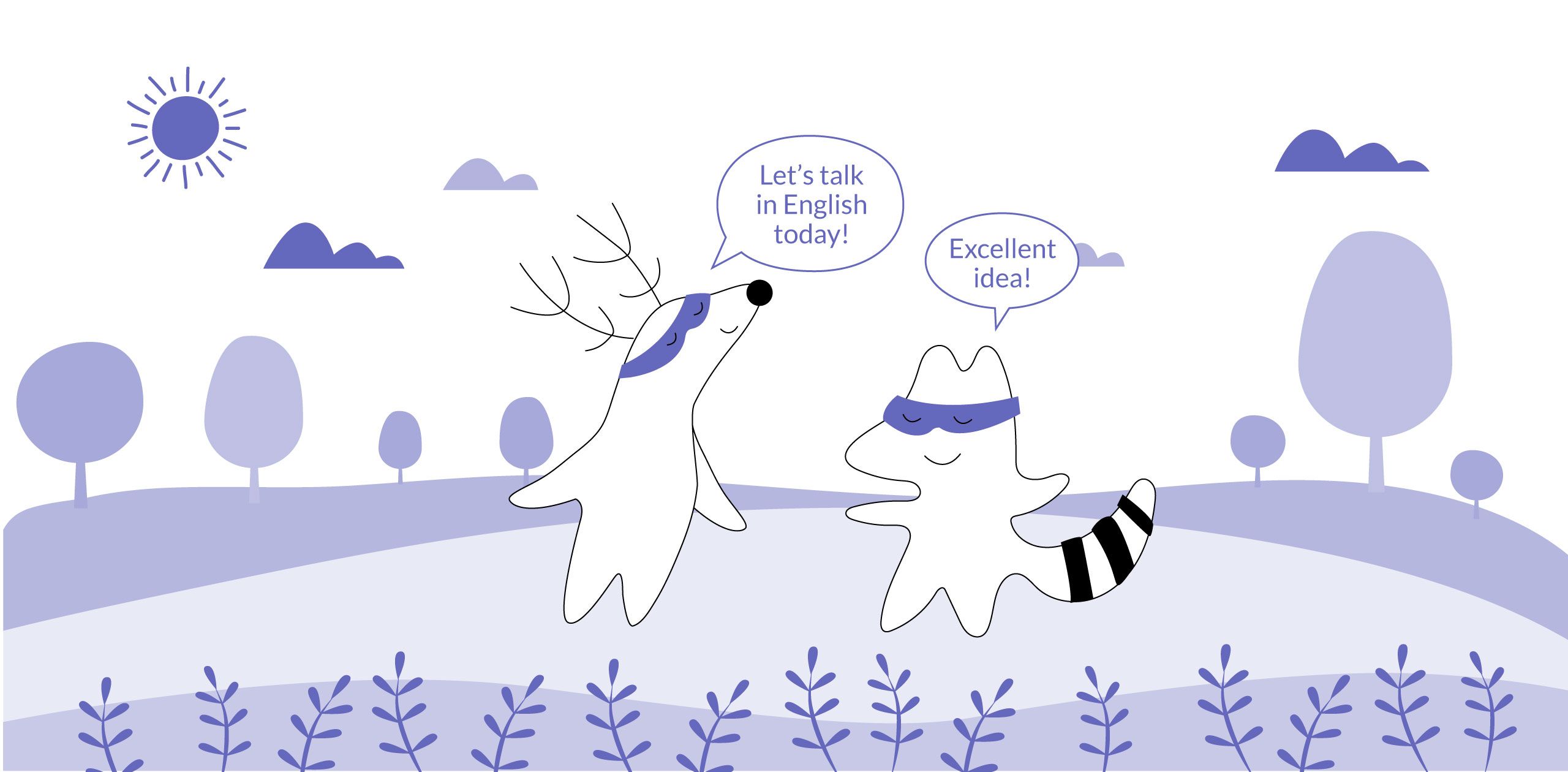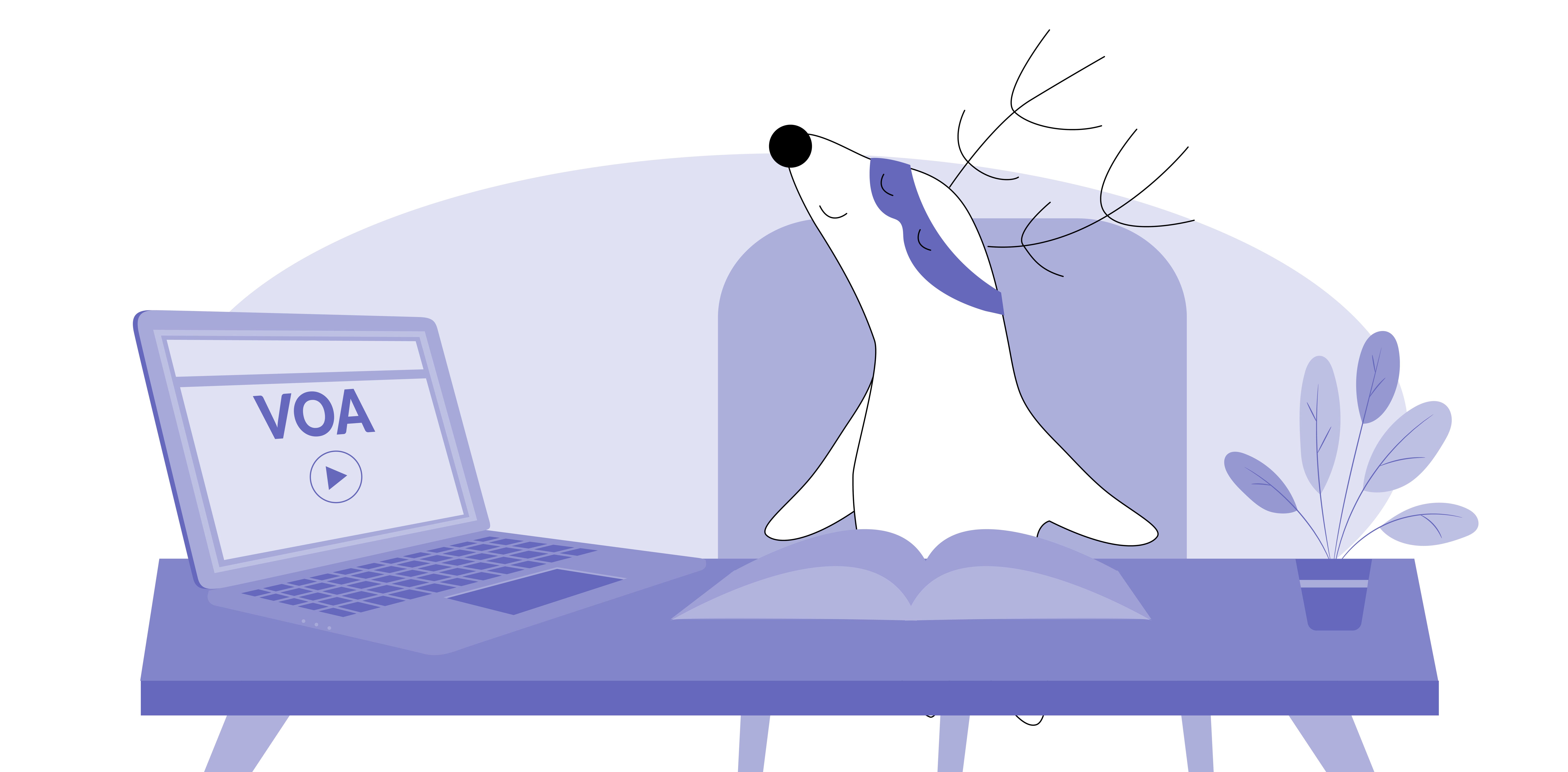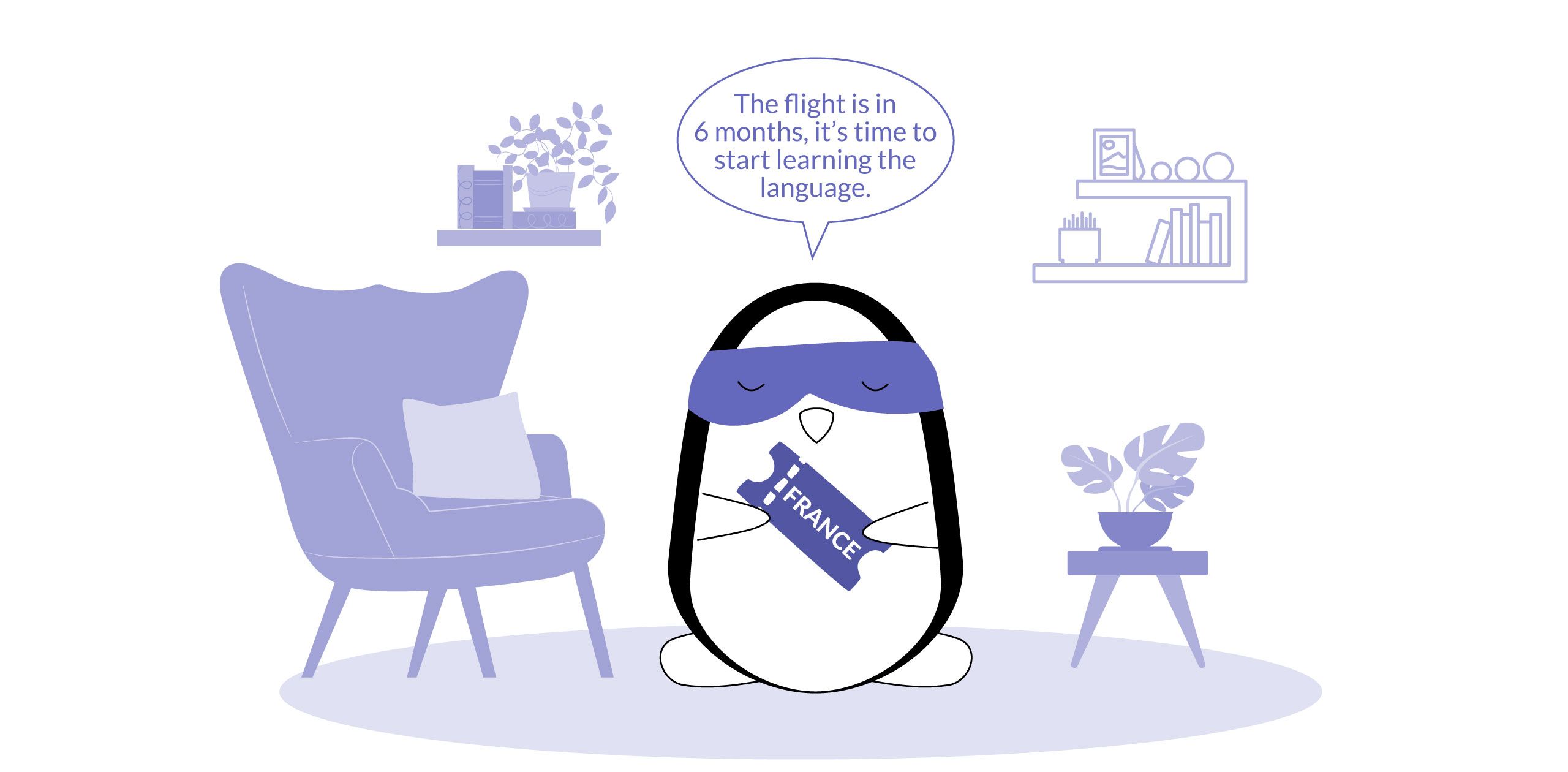
Learning a new language can be daunting, but it's even worse if you have no clue where to start. Fear not! There are many different methods that can help you easily raise your language level.
Taking beginner lessons or participating in forums or social media groups dedicated to learning your desired language – all of these approaches are guaranteed to satisfy your thirst for more knowledge.
Learn English with Langster
However, if you're looking for the fastest way to learn a language, there are several key components that you must keep in mind. Finding the right methods, practicing in the right way, remembering all the new words you learn – if you are not ready, the process of learning a language quickly can be overwhelming.
To help you get the best out of it, we've prepared a list of helpful tips and things that you need to keep in mind. Read on, make your language learning process quick and enjoyable – and find the fastest way to learn any language.
Get Started Correctly
One of the most important things when it comes to learning a language quickly is getting started in the right way. Many people make the mistake of diving in too deep and trying to learn too many things at once, which can be overwhelming and demotivating. Instead, you need to focus on several major steps.
Here are some of the things that can help you start correctly:
Set Your Goals and Objectives
The main step that should be your first one when learning a language is setting your goals and objectives. This will help you focus on the most important things and make the learning process more enjoyable.
There are several things that you need to consider when setting your goals:
- What do you want to do with this foreign language?
- What is the level of fluency you want to achieve?
- What type of language learner are you?
Once you have answered these questions, it will be much easier to set specific and measurable goals.
For example, if your goal is to be able to hold a business conversation in a foreign language within six months, then you might need to focus on business vocabulary and formal grammar structures. On the other hand, if you want to learn a language for travel, knowing some basic vocabulary and working on correct pronunciation is more important.
Determine the Time Frame
The methods you will use for learning a language depend not only on your goals, but also on the time you have.
For instance, if you want to study in France and are moving there in half a year, you only have 6 months to get your language knowledge to a certain level. This is a very short frame, which is why you might need to take private lessons and practice more than you would have to if you just wanted to be able to read Le Petit Prince.
If you are not sure how much time you have and simply want to learn the language as fast as possible, it’s still important to have a specific time frame in mind. In order to determine how long it will take for you to achieve your goals, consider a couple of things:
- The language that you want to learn will play an important role in this aspect – while some languages are easier than others, learning them can still take longer if you want to get to the highest level of fluency.
- Your current level of knowledge of the language - if you're already familiar with similar languages or there are several similarities between your own language and the one you want to learn, your learning process will be faster.
If it shares very little in common with your native language, then you need to take your time and fully focus on understanding the basics of the foreign language first.
Focus on the Basics
Whether you're a complete beginner or have already had some experience with learning languages, it's important that you learn the basics before going further. This means that you need to have a general understanding of how your target language (the language you want to speak) is written and pronounced, as well as know the most common words and phrases.
The sooner you start focusing on learning the basics, the better, and the more foundation you have, the easier the learning process will be.
This is not only true for languages that are completely different from your native language. Even if you speak one of the Romance languages such as Spanish or French and want to learn another foreign language from this group, there will be some differences to keep in mind when it comes to syntax and grammar rules.
While this does not seem like a big deal, mastering the basics will help you develop a strong foundation on which you can build your knowledge on. In addition, knowing the most commonly used words and the key grammar rules will make your life easier when trying to speak the language.
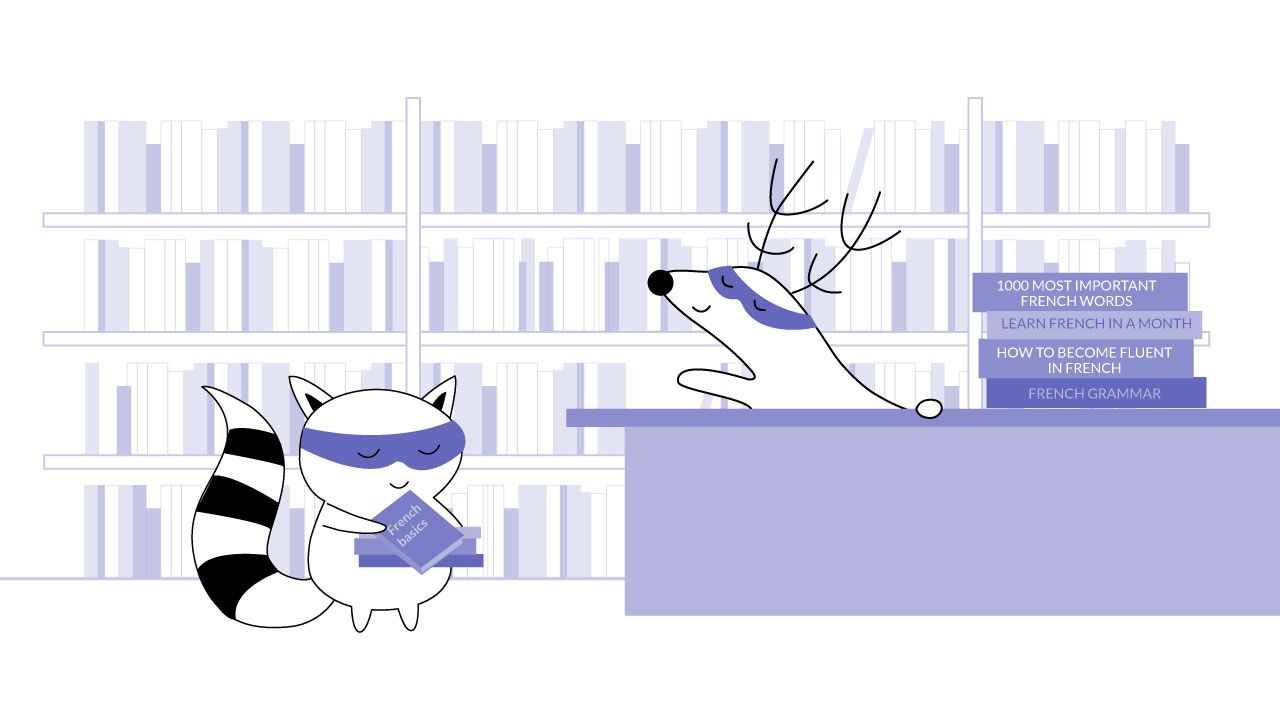
Find the Right Methods
There are many different methods that can help you learn a language. The best one for you will depend on your goals, objectives, and time frame.
To make your life easier, we’ve compiled a list of the most useful methods to learn a new language quickly – take a look:
Immerse Yourself in the Language
This is our favorite method for acquiring foreign languages, and also the one that has proved time and again to yield results. Simply put: learn how to speak your target language by speaking it every day and immersing yourself in its culture and daily life.
There's no simpler way of doing this than moving to a country where your target language is the only one spoken. If you don't have this option, though, there are a few other things that you can do:
Add Language to Your Daily Life
If you want to learn a language fast, then definitely think about adding more of the target language to your life. For example, keep a bullet journal in it, switch your phone language to it, or start writing in it on social media. You can also simply put sticky notes with new vocabulary words around your house – even this will help you get used to unfamiliar words.
Whatever you come up with works as long as you’re using the language as much as possible. Remember: the more you use the language, the better your skills will become.
Turn Entertainment into the Language You’re Learning
There are many ways through which you can add more target language to your life, but many of them can be slightly uncomfortable. Moreover, you can get burned out by learning too much. In that case, think about making the learning process a little more interesting and fun.
To do that, switch your entertainment to the foreign language – watch TV shows and movies in it, find new music or podcasts, try out different apps on your phone, read newspapers and magazines. If it makes you happy, you’ll be willing to continue learning.
Look for Your Ways of Immersion
There are so many methods of immersion that it's impossible to list them all. For example, you can use the internet in your target language, play board games in it, or simply communicate with native speakers of the language you’re learning through social media platforms such as Facebook or Twitter.
Look for ways that include something exciting for you: if you’re an avid reader, read more in the target language, if you like going out with people, try conversation clubs, and if you have to walk your dog often, listen to podcasts. Create your own immersion method, and remember: do whatever you want to do, as long as you’re making progress.
Try Flashcards
Flashcards are a tried and true tool to learn words quickly. They’re easy to use and can be taken with you wherever you go, making them perfect for on-the-go learners.
There are two ways to use flashcards: the first is by writing down new words or phrases on one side of the card, and the translation or definition on the other. The second way is to use language learning apps or programs that utilize the flashcard method.
Both methods have their own benefits: writing out your own flashcards helps with retention and understanding while using apps or programs can help with fluency and pronunciation. No matter which method you choose, make sure you review your flashcards frequently – at least once a day if you want to learn quickly.
It’s also very helpful to mix flashcards with a method called spaced repetition – a way of studying where you prioritize learning new words or phrases based on how well you know them, so as to avoid wasting time on things you’ve already mastered.
Hire a Tutor
If you're looking for a more personal approach to learn a new language, hiring a tutor might be the right solution for you. Tutors can help you learn the language faster by focusing on your individual needs and goals. They can also provide immediate feedback and guidance, as well as corrections and additional exercises.
The best way to find a good tutor is to ask around (maybe your friend or relative is learning the same language?) or search online – there are many platforms today that allow language teachers and students to find each other.
When it comes to hiring a tutor, there are a few things you need to keep in mind. First, make sure to interview several people before making your final decision. This will ensure that you find someone who is a good fit for you and your learning style.
Second, ask around for recommendations or search online for reviews. This will help you find a tutor who is reputable and has a lot of experience.
Finally, set clear goals with your tutor and make sure to review your progress regularly. This will allow you to stay on track and make the most out of your language learning experience.
Use Online Tools
One of our all-time favorite free resources for quickly learning any foreign language is Langster, but there are plenty of other platforms that can help you learn a language fast – take a look at Memrise, Tandem, or Duolingo.
These platforms, while they can't replace a good teacher, are useful in helping you find immersion opportunities, learning new words and phrases on the go, and improving your vocabulary. They're also great for practicing and working on the areas that you struggle with. When used correctly, they can help boost your language skills in no time.
We cannot emphasize enough how important it is to choose the right platform or language learning software for your goals and interests. Before making your choice, make sure to review each app and check whether the methods it uses are suitable (and enjoyable!) for you.
Mix the Methods
When it comes to learning a new language, it's important to find a method that works for you. However, it’s important to remember that all methods have both their benefits and drawbacks. Because of that, it's a good idea to mix different methods together – this will help you learn faster and more effectively.
For example, you can use a combination of flashcards and online tools. This approach is great for learners who are on the go, as it allows them to study any time and anywhere. Additionally, using flashcards with online tools can help with pronunciation and fluency.
Another way is to hire a tutor and use language learning apps at the same time. This approach is great for learners who want more personal attention and want to focus on specific areas that they struggle with.
There are literally endless possibilities when it comes to learning a language, but the most important part is to find what works for you. Mixing different methods will allow you to study in the best possible way and propel your language learning forward like never before.
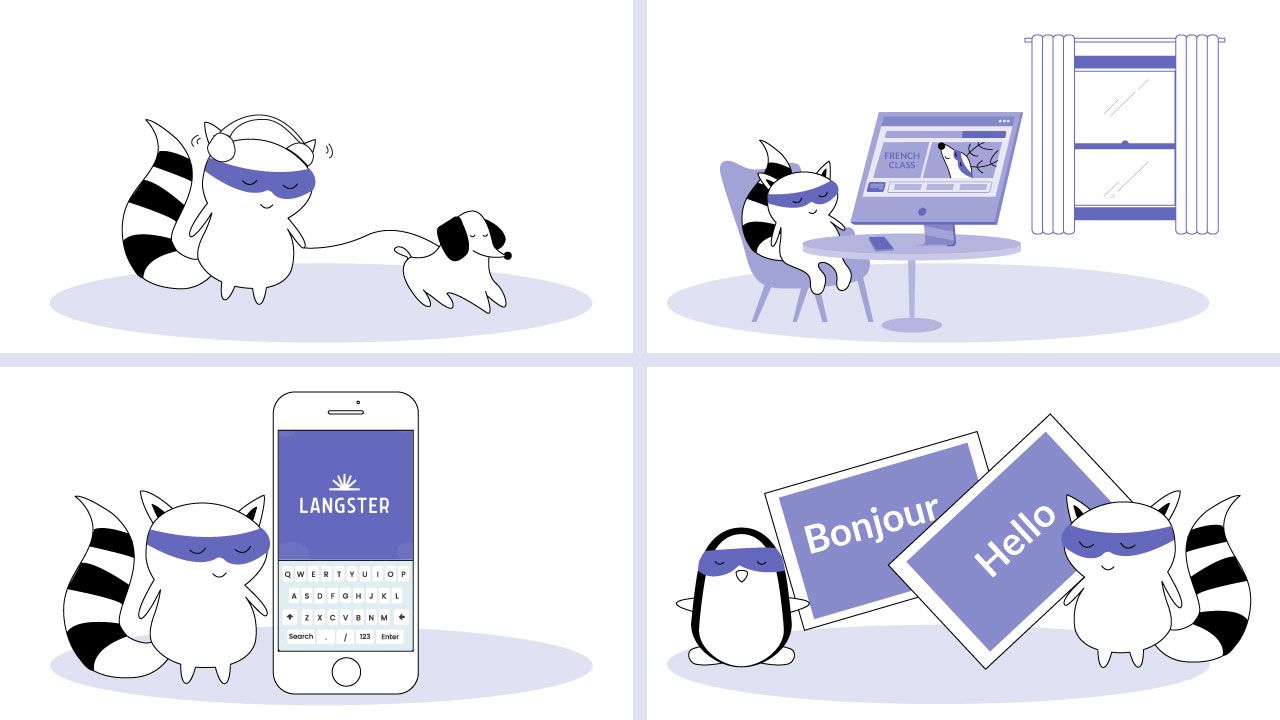
Remember about Reinforcement
When it comes to learning a new language, it's important to remember that repetition is key. Reinforce your knowledge regularly – this will help you learn faster and remember the information for longer.
Here are two things you should remember when repeating what you have learned:
Practice Regularly
Remember: practice makes perfect. The more you practice, the easier it will be for you to remember new rules and vocabulary. This is because regular repetition helps to embed the new information in your memory.
There are many different ways to practice a language, such as reading articles or books in the target language, listening to audio recordings, or watching videos. You can also practice writing by keeping a journal or writing down new words and phrases, among others.
No matter what method you choose, make sure to practice the language consistently – this will help your brain stay connected to the subject and won’t let you get distracted from the learning process.
Remember about Real-Life Practice
One of the most important aspects of learning a new language is practicing it in real-life situations. This allows you to use the language in a natural way and helps boost your fluency and pronunciation, as well as significantly improve your speaking skills.
There are many different ways to get real-life practice, such as talking to native speakers, attending conversation groups, traveling to a country where the language is spoken, or using online tools that provide immersion opportunities. Look for something that works for you.
Speak More (And Don’t Worry About the Mistakes)
When you're learning a new language, the best way to improve is to start speaking as much as possible. And don't worry about making mistakes – everyone makes them! The more you speak, the more comfortable you'll become with the language, and the fewer mistakes you'll make.
Here are some ideas for speaking practice:
Look for a Speaking Partner
One of the best ways to learn a new language is to find a speaking partner. This can be someone who is also learning the language, or a native speaker. Having someone to practice with will help you learn more quickly and make fewer mistakes.
If you're looking for a speaking partner, there are several different ways to find one. You can search online for websites or forums specifically for language learners, or check out social media groups dedicated to your desired language.
You can also ask friends or family members if any of them speak your target language. If you live in a city with a large immigrant population, there may also be local clubs or associations that can help you meet a language partner.
Whatever route you choose, make sure to find someone who is patient and willing to help you learn – and someone you’re comfortable talking to.
Try a Language Exchange Group
If you're looking for more of a formal learning experience, you can try a language exchange group. This is a group of people who meet up regularly to practice speaking the language they are learning. These groups are usually made up of both learners and native speakers, so you'll be able to get plenty of practice.
Most major cities have language exchange groups, and you can usually find them by doing a quick online search. Be sure to check out the group's policies before joining, as some may require that you have a certain level of fluency before you can participate.
Volunteer Abroad
Volunteering abroad is a great way to learn a foreign language. When you go to a foreign country as a volunteer, you're immersed in the language and culture. You are also surrounded by native speakers, which allows you to practice your new language skills every day.
Moreover, just like language exchanges and regular travel, volunteering abroad can help you learn more about the country's history and customs. Plus, you'll make new friends from all over the world!
Learn About the Culture
When learning a new language, it's important to immerse yourself in the culture of the country (or countries) where it’s spoken as much as possible.
This will give you a better understanding of the people who speak this language and their way of life. It can also help you to better understand the language itself, as you will be able to see the words and expressions in their cultural context.
By learning about the customs and traditions of a foreign country, you'll be able to more easily engage in conversations with locals and make new friends. Being familiar with the culture can also help you to make new friends and contacts from other countries, which can be a valuable resource for learning even more.
So what are you waiting for? Include some lessons about the culture in your language learning journey right away.
Stay Motivated
When learning a new language, it's important to stay motivated and focused on your goals. This can be a challenge, especially in the first few weeks when you're struggling with lessons or feeling overwhelmed. However, motivation can help you stay interested in the process, and continue learning and progressing at a faster pace.
Here are some ideas for keeping your motivation as high as possible:
Find What Motivates You
Finding your own motivation to learn a language can be a challenge, but it's worth it in the end. Here are some ideas to get you started:
- Think about why you want to learn the language in the first place. Is it for personal or professional reasons? Knowing your desired outcome will help you stay focused on your goals.
- Set goals for yourself and make a plan of action to achieve them. Seeing your progress will help keep you motivated along the way.
- Find a learning style that works best for you. Some people prefer to study in a classroom setting, while others prefer to learn on their own. Or maybe you need some music in the background when learning? Find what works best for you and stick with it.
Set Achievable Goals
The most important way to stay motivated when learning a language is to set achievable goals and celebrate your successes along the way. Divide your language learning process into parts, and then create smaller tasks each time you study.
For example, set a smaller goal of completing each chapter in your textbook – and when you do that, celebrate by going out for coffee with a friend who also speaks the language. Or, if you're able to carry on a conversation in the new language, treat yourself to a new book or movie in that language – of course, if your level allows.
Make sure your goals are simple and realistic, and your treats are enjoyable – this will help you stay on track for a longer time.
Test Yourself
One way to stay motivated when learning a language is to test yourself regularly. This can help you to see how much you have learned and what areas you need to focus on more. It can also be a fun way to learn, as it allows you to compete with yourself and challenge yourself to do better each time.
There are many different ways to test yourself when learning a language. For example, you can take quizzes from online courses, or try out your new skills with a native speaker. You can also keep track of your progress by writing down your scores or noting the words and expressions that you know well.
Testing yourself regularly is a great way to stay motivated and focused on your language learning goals.
Create a Language-Learning Bucket List
A bucket list is a great way to motivate yourself and keep your eyes open for new opportunities. Creating one that revolves around learning a language is the perfect way to find ways of immersion and fun in your newfound hobby.
You can simply write down all the things you want to do to learn the language, or you can take it a step further and create small challenges for yourself. For example, try learning how to write your name in the target language or talk with five people in your target language.
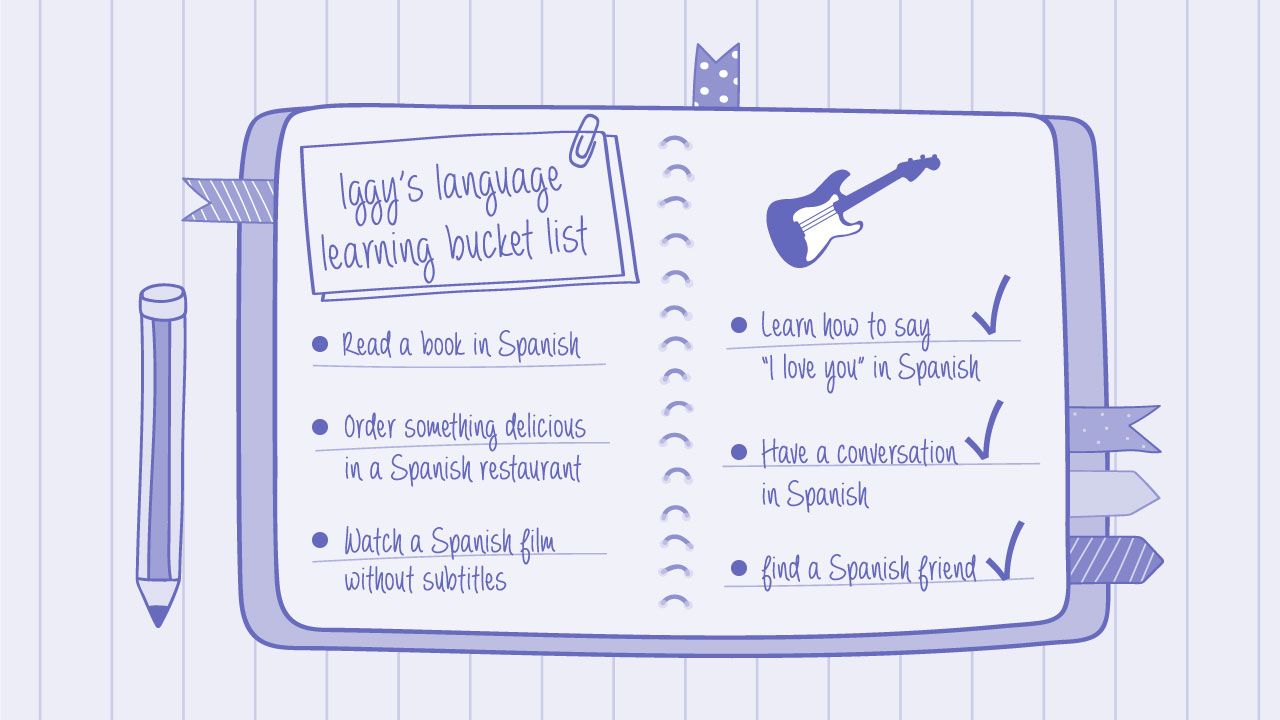
Join an Online Community of Language Learners
When learning a new language, it can be helpful to join an online community of other language learners. This can provide you with support, online resources, and advice from others who are also in the process of learning. It can also be a great way to make new friends and contacts from all over the world!
There are many different online communities for language learners available. Some popular ones include websites and forums such as italki or HelloTalk, as well as social media platforms such as Facebook, Twitter, or Reddit.
By joining an online community of language learners, you'll have access to a wealth of information and support that can help you to stay motivated and focused on your goals.
Don’t Overwork
It's important to remember that it's okay to take a break from time to time when learning a new language. Overtasking yourself can lead to burnout, which will only make learning more difficult.
It's also important to find a learning style that works for you and stick with it. If you're finding that you're struggling to stay motivated, it might be time to change things up a bit. Try studying in a different setting or with different materials.
Most importantly, remember to have fun while learning – find methods of learning that excite you and stick with them. Soon enough, you'll be speaking your new language like a native.
Final Thoughts
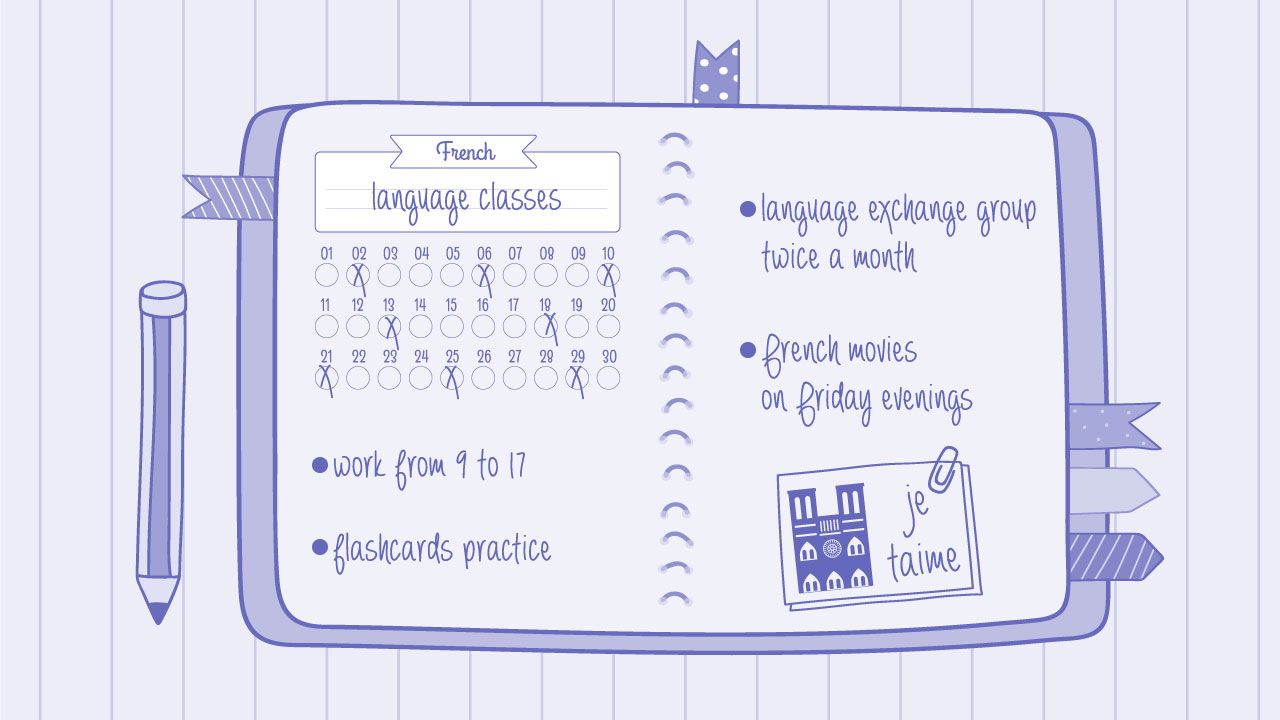
When it comes to learning a new language quickly, there are many different methods that can help you achieve your goals. By setting goals for yourself, finding the right learning method, and practicing regularly, you'll be well on your way to fluency. But don't forget to have fun along the way (for example, by using the Langster app).
After all, learning should be enjoyable, not a chore. Join an online community of language learners or try out some fun language-learning challenges to keep things interesting. And most importantly, remember to take breaks from time to time so that you don't overwork yourself. With these tips in mind, you're sure to learn a new language quickly and easily!







